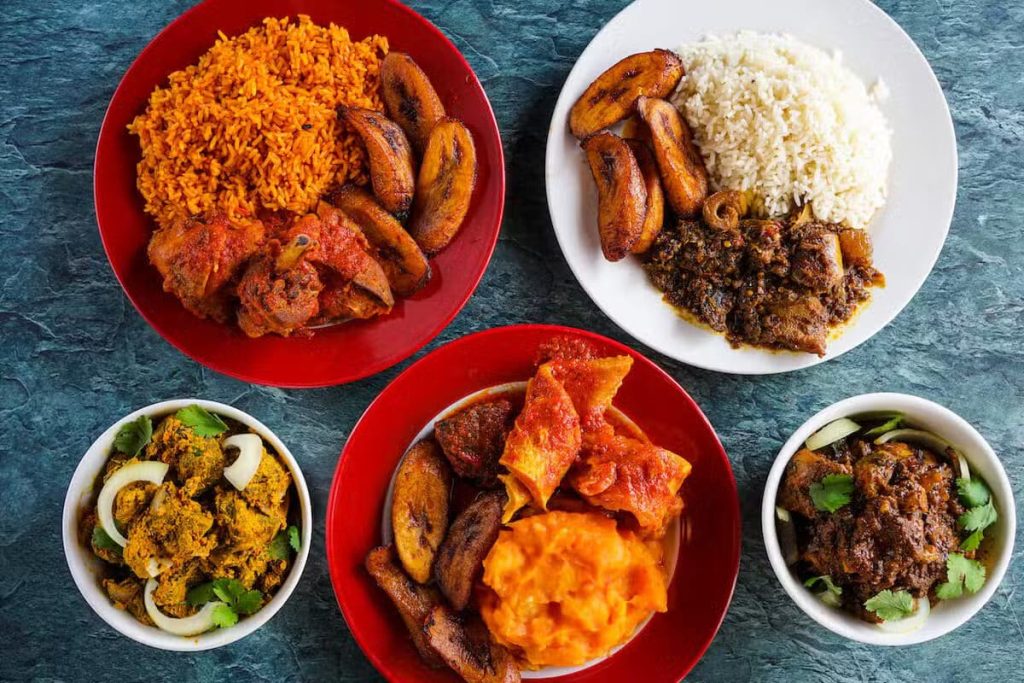In Nigeria, food is far more than mere sustenance—it is a vibrant reflection of the nation’s rich history, diverse cultures, and communal spirit. From the bustling streets of Lagos to the serene villages of Kaduna, Nigerian cuisine offers a sensory journey defined by bold flavors, hearty meals, and time-honored traditions.
The Legacy of Jollof Rice
Jollof rice, a dish with roots in the Senegambian region, has transcended its origins to become a national treasure in Nigeria. Simmered in a flavorful tomato-based sauce enriched with onions, peppers, and a medley of spices, Jollof rice is a staple at celebrations and gatherings across the country.
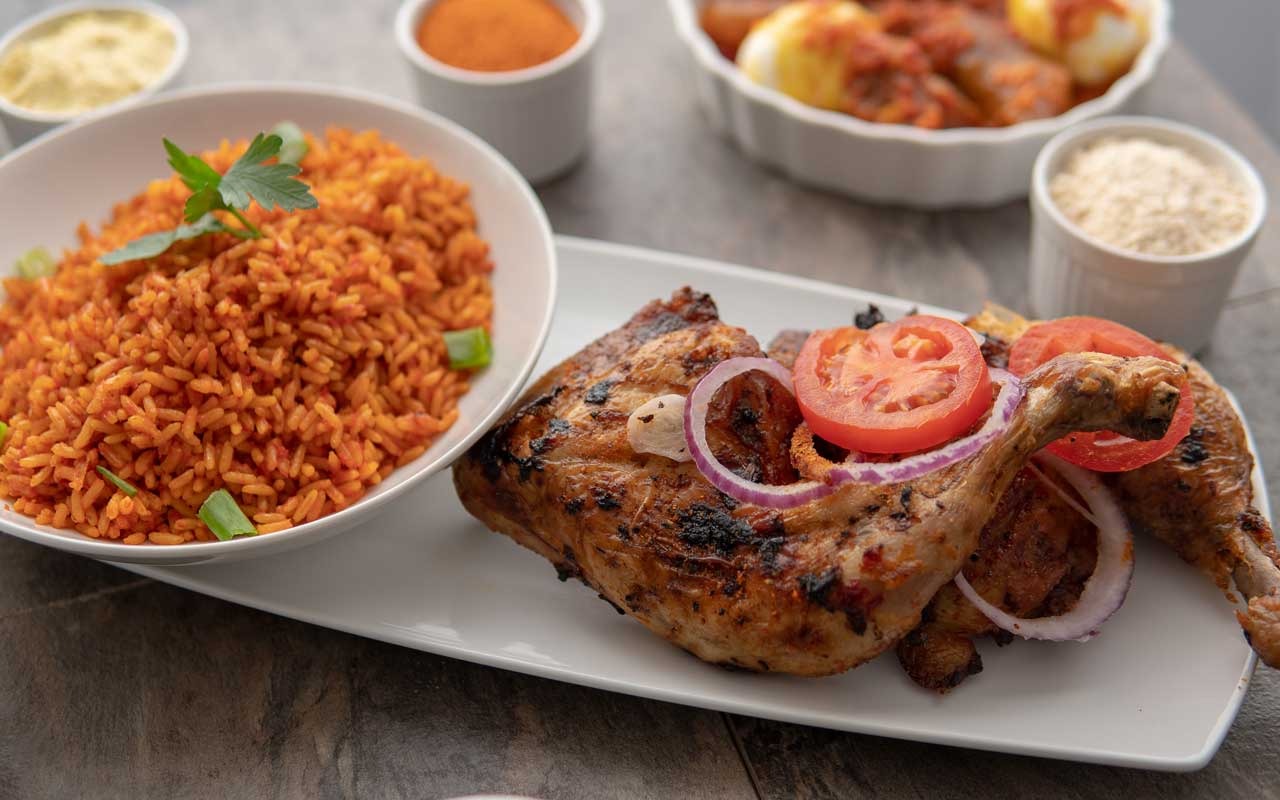
Cooks often personalize the dish by adding ingredients like meats, fish, or vegetables, with some experimenting further by incorporating coconut milk or nutmeg. Loved by all and served at occasions ranging from family dinners to grand weddings, Jollof rice is not just a meal but a unifying symbol of West African culture.
A Taste of Tradition: Pounded Yam and Egusi Soup
Among Nigeria’s most iconic dishes is the pairing of pounded yam and Egusi soup. Egusi soup, made from ground melon seeds, is a thick and hearty stew often enriched with leafy vegetables, spices, and proteins such as meat or fish. Paired with the smooth and stretchy texture of pounded yam, this duo epitomizes the warmth and comfort of Nigerian home cooking.
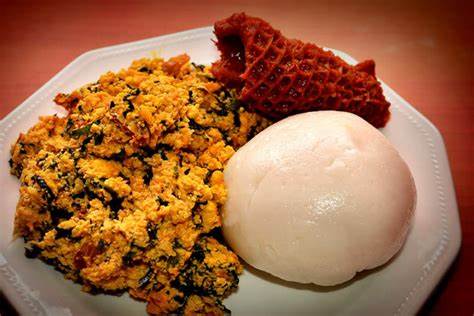
Widely enjoyed during communal meals and festive occasions, these dishes stand as pillars of Nigerian culinary tradition.
Suya: Nigeria’s Street Food Delight
For those seeking a quick bite with bold flavors, suya—a spiced, grilled meat skewer—is a popular choice. Originating from the Hausa people, this delicacy is seasoned with yaji, a blend of ground peanuts, chili, and aromatic spices.

Often accompanied by fresh onions and tomatoes, suya is a favorite among street food enthusiasts. Its smoky aroma is a familiar feature of Nigerian evenings, drawing crowds to roadside grills for an affordable and satisfying culinary experience.
Moi Moi: Versatility on a Plate
Moi moi, a steamed bean pudding, holds a unique place in Nigerian cuisine. Made from blended black-eyed peas, peppers, onions, and dried crayfish, it offers a savory flavor and tender texture. Frequently served alongside Jollof rice or fried plantains, Moi moi also stands on its own as a filling snack.
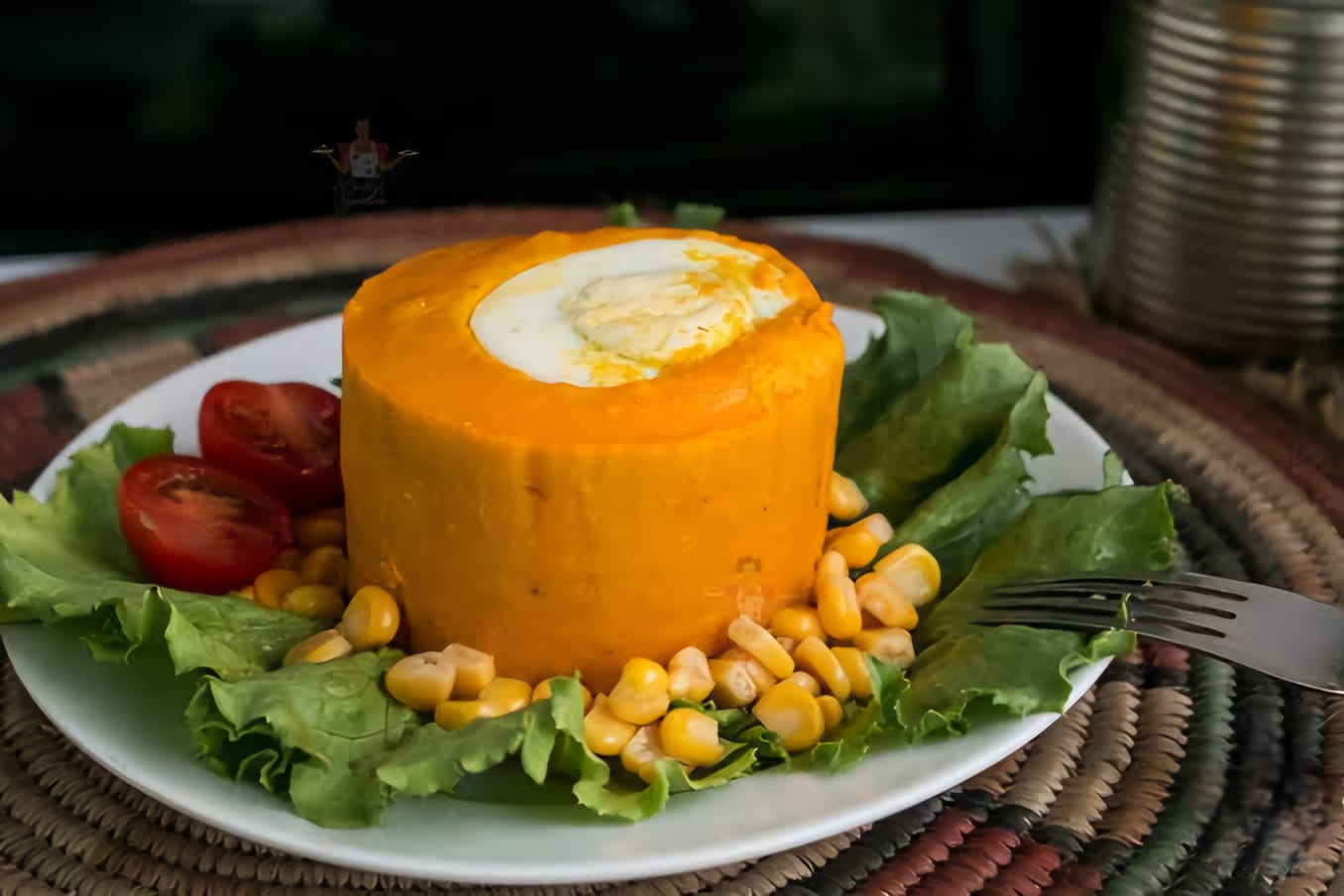
The dish’s versatility makes it a fixture at celebrations and a testament to the ingenuity of Nigerian cooking.
Efo Riro: A Yoruba Classic
Efo riro, a vegetable soup beloved by the Yoruba people, combines nutrition and flavor in every bite. Made with pumpkin leaves, tomatoes, onions, and a choice of assorted meats or fish, the dish is a household staple. Often paired with fufu, it highlights the balance of sustenance and taste that characterizes Nigerian cuisine.
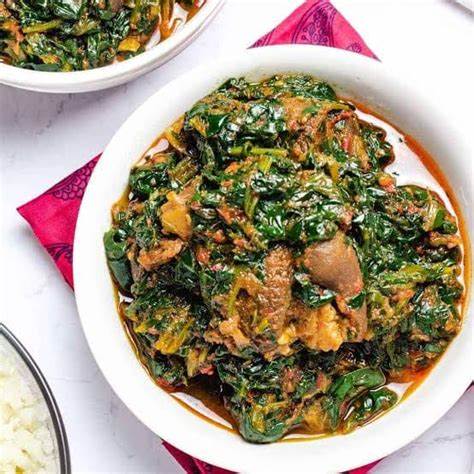
Beyond the Plate
Nigerian cuisine is more than just food; it’s a living archive of the country’s history and diversity. Every dish tells a story of migration, adaptation, and creativity. Whether it’s the celebratory aroma of Jollof rice or the comforting warmth of Egusi soup, the nation’s culinary heritage continues to inspire and unite its people—one plate at a time.
